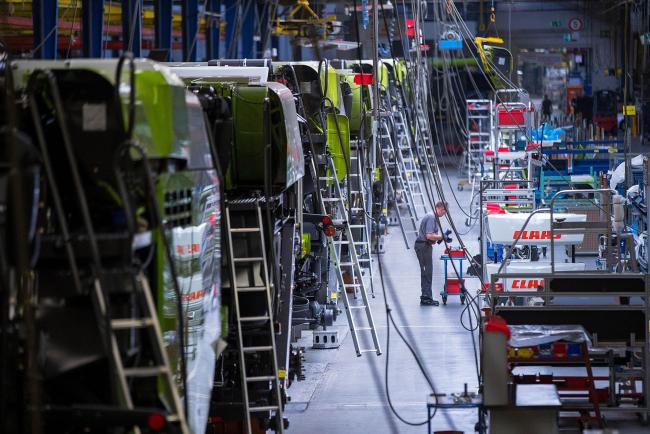(Bloomberg) -- German factory orders unexpectedly fell, suggesting Europe’s largest economy is still struggling to overcome a manufacturing slump and fend off recession.
Demand dropped 0.4% in October, defying estimates for a 0.4% gain. It was driven by weak demand for investment goods within Germany and outside the euro area. Bulk orders from within the currency bloc prevented a sharper decline.
The reading serves as a reminder that German factories have a long way to go to overcome a slump that’s already lasted more than a year. Industry output continued to contract in November, and business confidence remained muted.
“Manufacturing momentum continues to be depressed,” the Economy Ministry said in a statement. “The outlook for manufacturing in the fourth quarter is still subdued.”
Orders were down 5.5% from a year earlier in October, highlighting the damage global trade conflicts have inflicted on German industry.
A gauge for factories’ order stocks in November hinted at a continued contraction in the sector, according to a separate report from Germany’s Ifo institute. Carmakers, chemicals and metal-goods producers reported deteriorating conditions.
“The great order book deflation in German industry continues,” said Carsten Brzeski, chief economist at ING Germany. This “does not bode well for industrial production in coming months. The trade conflict, global uncertainty and sector-specific shocks are clearly weighing on German industry.”
The Bundesbank has said Germany’s economy will probably stagnate in the fourth quarter, and there’s little sign of a rebound any time soon. Growth is set to remain below 1% next year.
